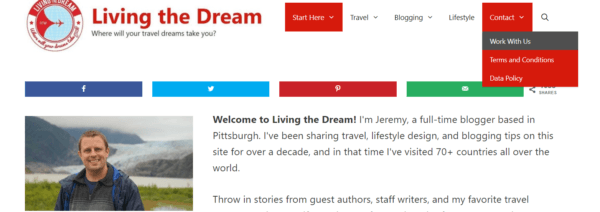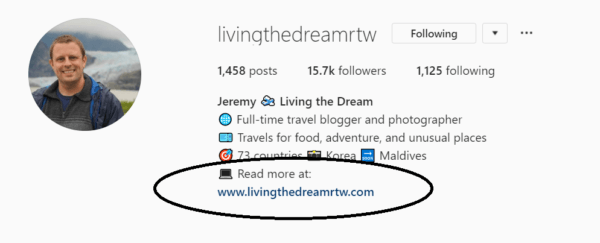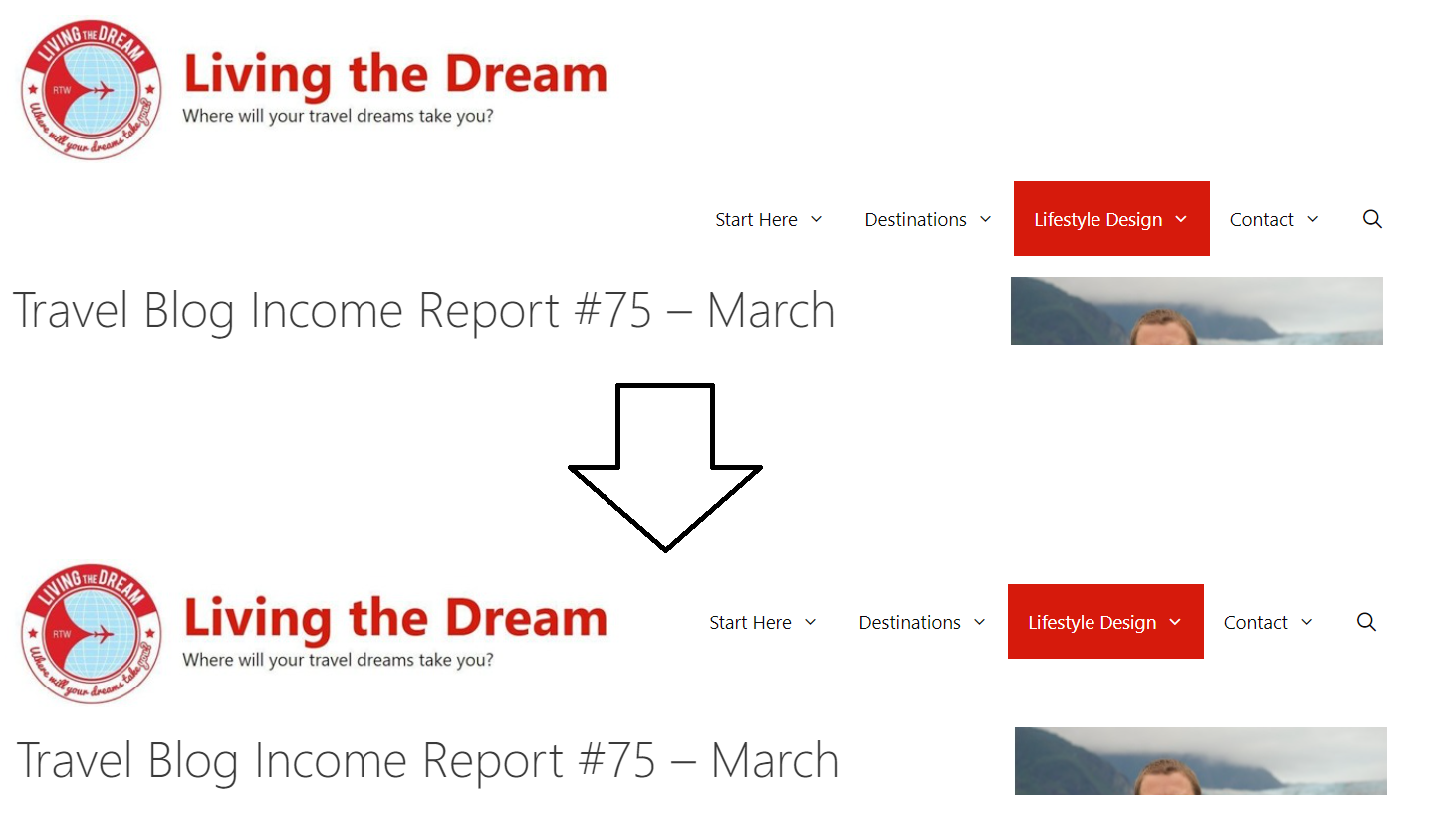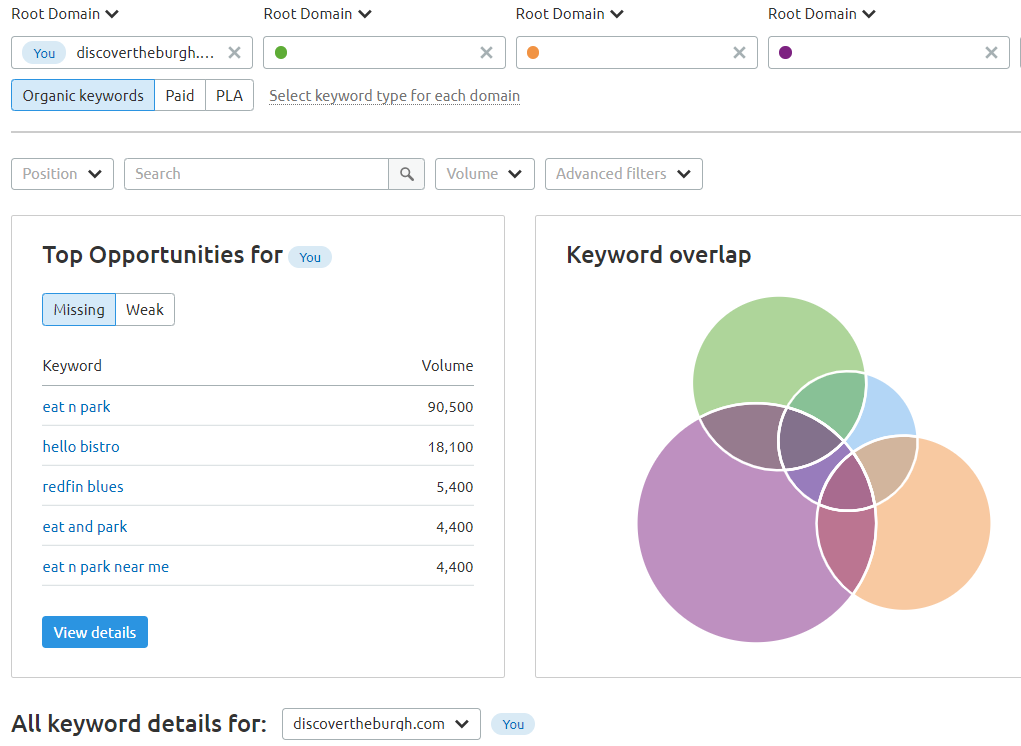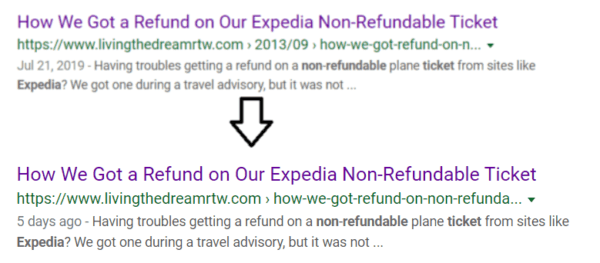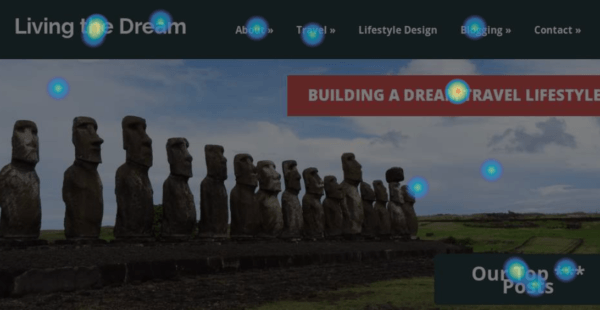Published by Jeremy. Last Updated on December 15, 2020.
Disclaimer: This Week in Blogging uses demographic data, email opt-ins, and affiliate links to operate this site. Please review our Terms and Conditions and Privacy Policy.
We receive pitches from PR firms just about every single day on our sites, and almost every one of them falls flat in one way, shape, or form.
There is seemingly some disconnect between PR firms and bloggers such that PR agencies don't seem to understand us, and perhaps bloggers do not seem to understand them in return.
To help with this, I thought it would be fitting to publish a few things that bloggers wish PR firms would know about us, as there are some rather easy explanations for why your campaign pitch fell apart, a blogger ignored you outright, or they quoted a fee for the promotion you are looking for. To help unravel some of these mysteries, and to help educate PR firms about bloggers in general, this post was born.
This article is specifically dedicated to PR firms- agencies that are hired as a 3rd party to represent a brand, product, or destination. While some of the following points are also applicable to DMOs, CVBs, and companies who represent themselves in marketing, a few points are tailored specifically to third party PR firms exclusively.
So while all marketing teams and agencies may find the following useful or insightful, a few are purposefully written for these firms only.
*Note: I did not crowdsource any of these points. So while I may be speaking solely for myself here, the below echoes many sentiments I have seen in private Facebook groups from my fellow bloggers.
There is No One Right Way to Blog
To start this list, I want to tackle a big pet peeve of mine upfront that PR firms should know. All bloggers are different.
While there may be many wrong ways to blog, there are also no right ways to do so either. Some bloggers sell dofollow links and engage in other possibly shady marketing practices. Some promote products on Instagram as “influencers”. Some only participate in paid campaigns while others will work on unpaid opportunities. Some re-write press releases as content while others only create unique features. Some pay for everything themselves others subsist on comps.
I could go on.
The truth of the matter is that we have all found different styles that work best for us. The point PR firms need to understand is that we know what works best for us, and we do not like it when you try and make us fit in your perceived box of how we should operate.
What may seem like a simple ask on your end could completely upend everything we've put together for our own business, so do not get upset when we say no because your pitch doesn't fit our styles. In fact, the quickest way to a yes is to pitch to our unique styles, because that is more or less a softball we can easily rock for you.
This brings me to point #2.
Research Us Before Getting in Touch
The above is easy to get around- do your research first. I know this sounds simple, but you can actually learn a lot by looking at a blogger's website (shocking, I know).
The above comment about a softball is apt because, quite frankly, no one sends them even though they should. I have lost track of how many PR firms ask us to re-write press releases on our local blog despite the fact that they should know that we are exclusively review based after experiencing a topic for ourselves.
Suffice it to say, it is very obvious to us when PR firms get in touch and do not even take a cursory glance at our website and social media channels. It takes about five to ten minutes to look through our social media channels, about page, and recent blog posts, and in that time you'll likely learn everything you need to know about the style of how a blogger operates.
In fact, this even gets down to the very granular level of emailing a blogger by name. My name is in every social media profile, on this website, at the start of every article, and even in my email address. Those who email with “Hello!” or “Hi [blog name]” or “Hello Pittsburgh” (all things that have happened, the latter for my local blog) are grounds for being deleted and ignored. Because if you profess to “love the site” so much, you should probably know my name at a minimum.
Read Our Work With Us Pages
This one should be self-explanatory, but if you are wanting to work with a blogger, check out their Contact and Work With Us pages while you're also researching their style (may also be called “Advertising”, “Press”, “Opportunities”, or other variants).
If done right these pages should provide everything you need to know about an outlet. It should provide what kind of advertising they offer plus terms and conditions. It should most certainly have a media kit with traffic and audience stats. And some even have information on minimum pricing too.
It is very obvious when PR firms get in touch with a pitch and they never read our work with us page. It is easy to find, and you have no excuse not to read it.
Many Bloggers Don't Know Why They're Successful
I may be expressing my disgust with PR practices in this article, but don't feel too bad- I hate the way a lot of bloggers operate as well. If you are in PR you should know a lot of what bloggers do is nonsense as well.
One of my biggest pet peeves against bloggers themselves is that they have no idea why they're successful. I cannot begin to describe the number of conversations that start with “I have [X] monthly readers and [Y] social media followers. They are [age range], and like [the exact topic they write about].”
Fill in those blanks, and that sentence can be said by literally everyone. To translate that into English, it means “I have no idea who reads my site or why, but here are a few numbers that sound impressive.”
I prefer to talk less about my fan count and these generic demographics and speak more into more focused specifics.
On my travel blog, I write SEO optimized articles tailored to provide insight to people actively searching for a topic in search engines. While I have [X] followers on social media and my social campaigns reach [Y people] over a set of updates, I do not prioritize this in what I do. I monetize my site on ads and affiliate sales, last year I had over [Z dollars] in logged sales via affiliate programs including [a, b, and c]. For a company like [c] I changed my promotion tactics to [1, 2, 3] which resulted in an increase of [X%] in clicks and [Y%] in sales. An example article style of how I would promote [new brand] comparable to [c] is at [link].
Or for my local blog, I can tell you that [X%] of our readers live in the city, [Y%] are in the metro, and [Z%] are within a 4-hour driving radius. This is both true for our website readership as well as our [X number] strong social media community (represented primarily on Facebook at [Y]). Our average reach per update on each social network is [Z] and we routinely rank first page in Google search for competitive Pittsburgh keywords like [a, b, c].
These are quick recaps I could give in an elevator speech but are much more detailed than simply saying “I have [X] fans who like [my niche],” and that is the point.
It is a night and day difference between bloggers who understand what they did to get to where they are and those who don't. Personally, I'd be leery of anyone who sells their fan count alone and cannot talk your ear off about their SEO, affiliate marketing, and other traffic and/or monetization plans as a follow-up. Odds are good they simply have no idea.
So why does all this matter? Far too many people will just say yes because there is a comped product or check involved, and it does no one any good if it ultimately doesn't work out for the end client. Data is key.
Ethics Are a Big Red Flag
On a parallel track to the above, many bloggers operate in ethically grey areas these days.
The dofollow link example from above is a good one as it is against Google's terms and conditions if money is exchanged hands. Any advertising with compensation legally requires FTC disclosure prominently in all updates (although there are some grey areas that are still being worked out on what “compensation” means). Social media fans can be bought and so can likes. And comment pods (where groups of people comment on each other's posts) is rampant on Instagram as mean to game engagement scores and look popular.
The biggest hurdle is in disclosures. Both PR firms and genuine bloggers must demand them, especially when payment occurs. Anyone who doesn't (on both sides) should instantly be treated with suspicion. I have a blanket policy of ending all relationships with anyone who demands a dofollow link in any advertising campaign. It just shouldn't happen if money is involved.
Researching fake fan counts, likes, and comments is on the PR firm. Its easy to just look at a public profile and take the listed figures as a sign of popularity, but you should also know that I could buy 100,000 Instagram followers in ten minutes and I could get 5,000 likes on my next image for just a few bucks. This is, of course, completely different than using the official advertising channels to find new, real fans. Use 3rd party services to check these out and you'll learn a ton that they probably don't want you to know.
Instagram influencers are also horrible at spreading misinformation, and most fall into the previous category of not knowing how they got popular (or they do know and refuse to admit it because they use shady tactics).
I once had the misfortune of sitting through an influencer talk at a media event, and the influencer in question said that if you don't have 3% engagement rate on Instagram that you have bot followers. Even though these two are often completely unrelated, it was said as an absolute only to make them look good (to the surprise of no one). At the same time, she failed to mention that she spends hours a day in comment pods to get return comments and thus an artificial increase to her engagement rate.
While a horrible practice that should be painfully obvious to anyone who researchs for more than five seconds, there is a bigger question going on here that we need to mention. If you're simply marketing to other influencers, is it really an effective campaign? I'd say no.
We Are More Than Our Instagram (Or Whatever Social Media is the Flavor of the Day)
At the time of writing this article, Instagram “influencer” marketing is hot. We get it. Everyone wants an influencer to promote their products right now because it is trendy. Most don't know why they want influencers, but just that they should be using them in marketing.
While I could write an entire article on its own as to why this practice is wrong, I want to speak on a slightly different angle on this topic here.
Bloggers use Instagram as just one social media outlet in a sea of many. Some bloggers make a big push to that network as their primary marketing outlet, some only do so minimally (we are all different- see point #1). I personally would say that Instagram represents under 5% of my business (if that), and I think this lower percentage is representative of the majority of bloggers out there.
So I find it insensitive at best and insulting at worst when PR firms get in contact with an intro of “I love your Instagram” and a pitch for an Insta-only media campaign (especially for my local blog where our Facebook reach is just as good and at times even better- most PR firms never bothered to find this information out).
Sure, if you're paying a fair rate and it is a fit for my brand I'll gladly give you what you want even if that is Instagram only, but you're missing out on a whole lot of potential with bloggers when you only care about < 5% of their actual business and marketing capabilities.
Tell Us How You Found Us And What You're Interested In
Telling a blogger how you found them is another professional courtesy that I do not see very many PR firms extending. There are the fluffy intros of “we love your blog” or “we love your Instagram” but that is not giving enough detail.
Did you find us through a specific article? Which Instagram post did you see? Did you find us through Google or a peer recommendation (and if so, who)? So many PR firms buy or have access to emails from mass-produced lists these days that it would be helpful for us to know how you found us for purposes of discussion. Likewise, it also tells us a bit more on how much you actually know about us.
Case in point, my email is not publicly accessible on my contact and work with us pages. I use contact forms on these pages because it specifically tells me which page someone emailed me from. If you reach out via my work with us page contact form, I'll know it, and I'll assume you read it (most don't). If you email me directly, I'll assume you got my email from somewhere else and, pending the context of the email, I can very quickly tell if you've actually looked at my site.
As such, don't just send out an email to a blogger and say “we love your site” without any context. It is very obvious, and we get tons of them per day that go straight to the trash bin.
You Don't Work For Free, So Why Should We?
I'll be the first to admit that there are many scenarios where a blogger could effectively “work” for free. This is another category that could warrant its own article, but because, again, everyone is different (see #1), it is hard to have a one-size-fits-all answer.
For me, there is a very clear line between a hosted opportunity (such as a FAM) with full editorial discretion and one with a laundry list of deliverables, featuring required marketing copy and short deadlines.
Most bloggers will deliver something without a charge in the editorial model (and may even outline typical publication types/quantities ahead of time). In these cases, whatever the topic is likely has to be a 100% fit for their brand in order to make sense for those kinds of exchanges.
But the second you ask for deliverables, a timeline, required copy, or featuring products that are out of place of standard promotion for said blogger, you're moving into the realm of advertising, and advertising requires payment.
I noted at the start of an article that some things only apply to PR firms over CVBs/DMOs and the like, and this category is specifically one of them. Most bloggers understand that not all brands have budgets. Travel writers also understand that not all CVBs/DMOs are equipped for paying for sponsored advertising when editorial press trips have been around for decades. Some will say no to these opportunities outright, while others will accept them by having means to monetize outside of it.
Where most all of us agree, however, is that PR firms are different. Why? You were hired specifically to provide marketing ROI to your clients. We know you're not getting paid in tweets or a comped meal, so why ask the people actually doing your marketing (influencers, bloggers, magazines, etc.) to work for free? The answer here is pretty obvious, and we all know you simply want to keep your contracted revenue in-house as much as possible.
As such, most PR firms we've dealt with like to make it difficult when reputable media asks for payment.
The number of firms who have been outright offended that I even asked for payment is staggering and has resulted in me being laughed at, criticized, and removed from contact lists outright. I'm not losing sleep never hearing from these poorly run firms anymore, but it is worth noting that you contacted us first.
I am of the mindset that you reaching out to pitch a campaign to us means that you already see the value in our outlet. I know the rates I need to charge to keep my business going to provide said coverage, and if you are asking any reputable business to work for you (especially with deliverables, copy control, and deadlines), you should expect rates to come up at some point in time.
Please Don't Waste Our Time
To end this post, I want to reiterate that most bloggers get dozens, if not hundreds of emails per month from PR firms, marketing agencies, SEO specialists, and brands all following the same format. Namely, do this for us and you may get a pittance, retweet, meal, or ticket in return. Occasionally, we'll actually be offered a competitive rate right at the start.
I'll give you one guess which one we reply back to immediately. We don't have time to handle all the other bullshit.
We research content. We write. We create photos and videos. We market. We do SEO. We manage our business finances. We handle all our social media. We reply to emails. We are often small teams (or a team of one) and have to wear every hat that is required in our business. This means we are very, very busy. So please, please don't waste our time with nonsensical emails asking us to do more work for free. We've got that part covered already.
The truth of the matter is that some firms know what they're doing. Most don't. Some people have researched our sites. Most haven't. Some people are after ethical marketing. Most aren't. Some people have budgets. Most will get offended when we ask for payment.
The common factor between all of these is that the vast majority of emails we receive are not worth our time, and as the person who initiated the outreach that is on you.
If you are upfront, honest, and share full details of your campaign ahead of time (including rates), it makes things easier for discussion. We are simply too busy to reply back to people who get in touch with “Hi [admin], we love your Instagram and have an influencer campaign for $10!” When our starting rate for discussion is $2,000, as clearly outlined on our work with us page, negotiating is simply a waste of time.
We'd prefer it if you took an extra few minutes to research us before hitting send, and also would prefer it if you didn't send six follow-up emails over the course of the following month to ask when we will publish something we never agreed to in the first place.
Are you a blogger that has a pet peeve about PR firms? Comment below to share it!
Join This Week in Blogging Today
Join This Week in Blogging to receive our newsletter with blogging news, expert tips and advice, product reviews, giveaways, and more. New editions each Tuesday!
Can't wait til Tuesday? Check out our Latest Edition here!
Upgrade Your Blog to Improve Performance
Check out more of our favorite blogging products and services we use to run our sites at the previous link!
How to Build a Better Blog
Looking for advice on how to improve your blog? We've got a number of articles around site optimization, SEO, and more that you may find valuable. Check out some of the following!




